Who Really Paid for Your Political Feed?
Just a few short weeks after a record-breaking election season that saw nearly $11 billion spent on ads, black SUVs ferried the ultra-wealthy from their private planes to a five-star hotel in Las Vegas.
The attendees were met there by some of the newest appointees to the incoming Trump administration, including Susie Wiles, who had just been chosen to be the White House chief of staff. This was a biannual conference of the Rockbridge Network, a secretive organization founded in 2019 that, among other things, funnels millions of dollars into a conservative ecosystem of right-leaning investigative journalism, documentaries, polling, and media organizations.
One of the founders of Rockbridge was JD Vance, back when his primary claim to fame was being a bestselling author. He had not yet involved himself in politics, but even then, he wanted to change the Republican Party. He found an ally when he met Chris Buskirk, an investor and the publisher of American Greatness, a commentary website that aims to be the “leading voice of the next generation of American Conservatism.”
Over meals and small get-togethers, Vance and Buskirk talked about how they wanted to replace what they viewed as a failed system of think tanks and advocacy groups with something new, something tech-forward and exciting.
Vance and Buskirk transformed those dinner parties into the Rockbridge Network, joining the ranks of groups that are blowing Democrats out of the water in the new media money war.
Spending on political messaging is hardly new, and it’s certainly not confined to right-of-the-aisle actors. In 2010, the Supreme Court made it easier for anyone to amplify political media. Its decision in Citizens United v. FEC granted free rein to corporations and nonprofits to spend unlimited amounts of money on free speech, which led to an increase in spending by donors, corporations, and politically active nonprofits. Those nonprofits don’t legally have to disclose their donors, even if they are using the money to influence elections.
Following Citizens United, another ruling by a lower court helped pave the way for super Political Action Committees, or super PACs, which can accept unlimited donations but must stop short of coordinating their spending with a candidate.
Groups like Rockbridge can now legally pour money into whatever they think will help amplify their messaging, and increasingly, that has become individual content creators and commentators. In 2024, Pew Research found that nearly one in five Americans regularly get their news from social media influencers, and there is no federal requirement for influencers to disclose whether a politician’s campaign or a super PAC paid for their content. (Regular PACs do have to report their spending, but they don’t have to disclose individual account names or influencers they work with.)
The Rockbridge Network’s initial funding came in part from conservative heavyweight Peter Thiel, a co-founder of PayPal and Palantir, the data-mining company whose work with Immigration and Customs Enforcement, the Department of Defense, and the Israeli military has launched protests in multiple countries. Thiel, who has questioned whether freedom and democracy are compatible, once employed Vance and donated to his 2020 Senate campaign.
Another early funder was Rebekah Mercer, a New York hedge fund heiress and one of the right’s most important megadonors. She put money behind Breitbart News and invested in Cambridge Analytica, a data analytics firm that collected personal data from Facebook users without their consent to create personalized political advertisements.
Made up mostly of wealthy tech executives and deep-pocketed investors, Rockbridge has an annual fee of $100,000 or, if you want more influence, $1,000,000. The larger fee gets someone a seat at the table where Rockbridge decides how to spend its money. In 2024, the group had 150 to 200 members and a budget between $70 and $80 million.
In 2021, they budgeted $8 million for the Rockbridge Media Project — think TikTokers, YouTubers, and conservative news sites. In one example, a Rockbridge group produced a documentary about Manhattan District Attorney Alvin Bragg, who successfully prosecuted Trump’s hush money case. In another, a venture capital group started by Rockbridge members called 1789 Capital put $15 million into conservative TV personality Tucker Carlson’s new company (Carlson and his business partner bought them out earlier this year).
Not all of Rockbridge’s media efforts are trackable, and Rockbridge isn’t the only group directing hard-to-trace money.
Charlie Kirk, who was assassinated earlier this month, founded Turning Point USA at age 18 with Bill Montgomery. Kirk’s first big backer was Foster Friess, a Republican megadonor who gave him $10,000 in 2012 after they met at the Republican National Convention. But many of Turning Point’s major donations have come from dark money groups. Some of the groups are named, but they themselves accept large, anonymous contributions and then distribute the money to groups like Turning Point. They include the Bradley Impact Fund, which gave $23.6 million from 2014 to 2023, and Donors Trust, which gave about $4 million from 2020 to 2023, according to tax filings from Bradley (2014, 2016, 2017, 2018, 2019, 2021, 2022, 2023) and Donors (2020, 2021, 2022, 2023).
The total revenue of Turning Point USA was $85 million in 2024, an increase from $28.5 million in 2019. A little over 99% of that came from charitable donations, though many of them remain anonymous. It’s unclear exactly how much of TPUSA’s money is spent on the new media ecosystem, but the group’s website says they are “constantly expanding our network of conservative social media influencers” and includes a form to apply. In 2020, Turning Point announced that it had welcomed 200 “ambassadors” to the influencer team. It didn’t include information about whether or how much they were paid.
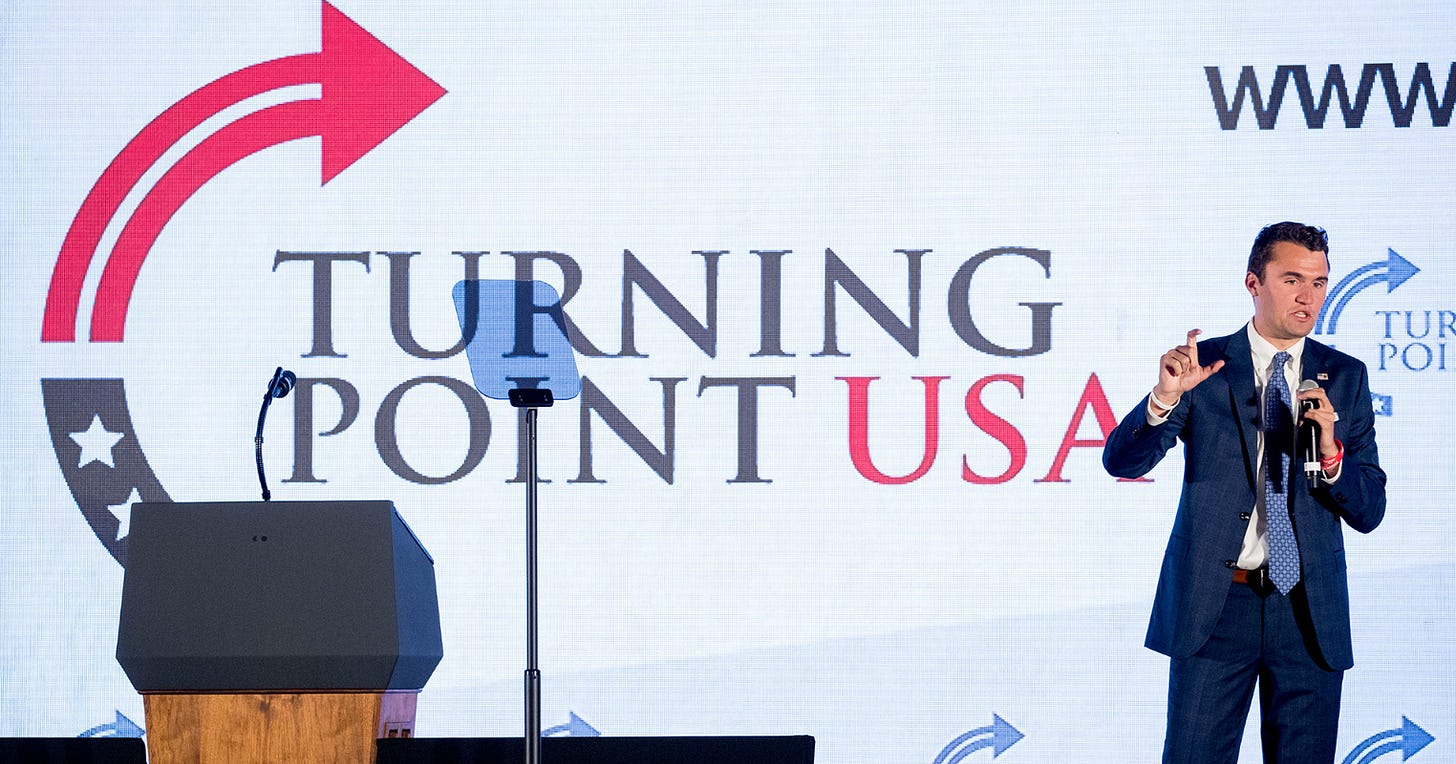
The impact of Turning Point on the media is undeniable: not only because of the legacy of Kirk, but because Turning Point also helped launch the media careers of Candace Owens, Benny Johnson, Alex Clark, and other conservative commentators and influencers. One former Turning Point employee, Anna Paulina Luna, is now a member of Congress.
Kirk said, “We made long-term investments in creators and in influential voices that we believe will be the opinion shapers of tomorrow.” He used to say, “Win the culture, win the country.”
There’s also Tenet Media. The group funded six conservative influencers, including Benny Johnson and Dave Rubin. Together, they have more than 14 million subscribers on YouTube and X.
But according to an indictment filed by the the Justice Department in 2024, they were actually working for a company that was pushing Russian influence and propaganda ahead of the 2024 presidential election. The indictment says two Russian nationals who were employees of state-run Russian media managed $10 million and set up a Tennessee-based company that was ultimately a front for their propaganda campaign. That company then paid the influencers through Tenet.
According to the indictment, one influencer’s contract (prosecutors didn’t identify which one of the six) included a $400,000 monthly fee, a $100,000 signing bonus, and an additional bonus based on performance. The paid videos included conversations about Elon Musk and racism toward white people.
The influencers say they didn’t know they were a part of a propaganda machine.
While it’s true that the left also funds media messaging using influencers, donations, and dark money, the Democrats have not adjusted to new media in the same way that Republicans have.
Recently, a report from Wired revealed that Chorus, a nonprofit, offered Democratic influencers up to $8,000 a month to take part in a cohort that provided media training in an attempt to boost Dems’ messaging online. According to one of the founders, Chorus was an effort to find and amplify liberal creators. “We have an obligation to do it because the Democratic Party has been so slow in adapting to the media environment that we’re in right now,” said Brian Tyler Cohen, host of a popular YouTube channel.
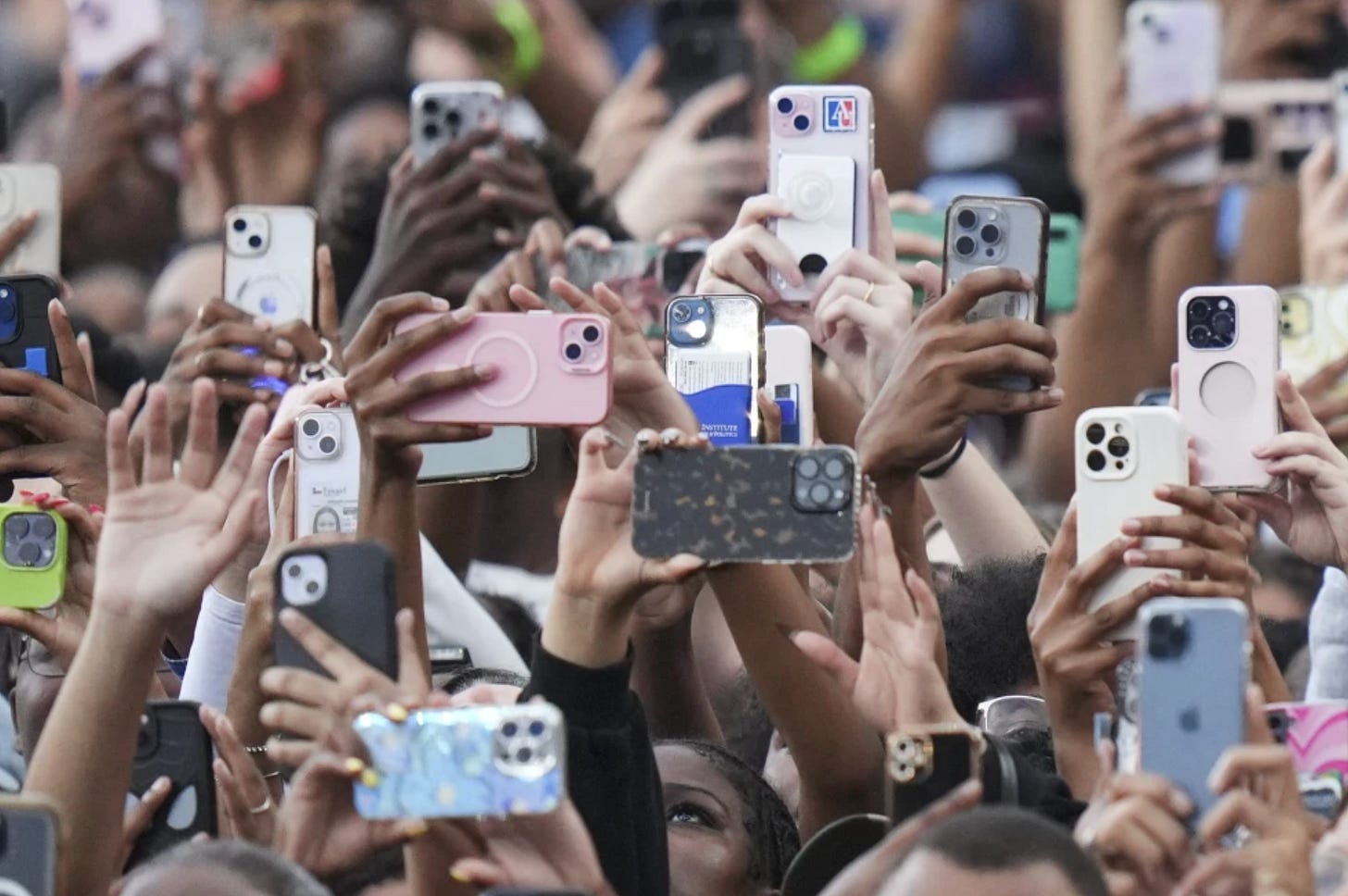
Chorus was fiscally sponsored by the Sixteen Thirty Fund, a dark money 501(c)(4) group that aims to “maximize impact and create lasting change.” That means Sixteen Thirty receives donations on Chorus’s behalf and provides administrative support but is not the sole source of funds. It’s therefore not clear — this is dark money, remember? — how much funding the Chorus Creator Incubator Program has to spend. On the FAQ section of their website, they say they have seen grassroots support from 5,000 individuals since launching in December 2024. (They also say they don’t pay creators for content. The Wired article says creators were threatened with getting kicked out and cut off financially if they admitted to being part of the group — which some of the participants dispute.)
Stuart Perelmuter, whose firm Good Influence finds political and advocacy opportunities for creators and helped launch Chorus, said after the 2024 election, “We got killed in alternative media. Republicans have been investing in that space for years. And on the left we have treated creators who are not in legacy media as gig workers.”
In 2022, American Bridge, a Democratic super PAC, launched a six-figure program that included payments to podcasters and influencers. The creators had anywhere from 20,000 to 100,000 followers, including a contestant from the reality shows The Bachelorette and Bachelor in Paradise.
Two years later, the Democratic super PAC Priorities USA, which also funnels money though a 501(c)(4), launched its first-ever creator program, putting $1 million behind the campaign. They enlisted about 150 influencers to post pro-Biden content on social media, mostly in battleground states.
Because of the lack of rules around disclosure, it’s hard to know exactly how much money is being put into new media from either party. But polling, analysts, and creators alike say that the Democrats fell flat this election cycle. Brendan Gahan, co-founder of influencer marketing agency Creator Authority, said, “Democrats missed the next generation of media. Historically they owned Hollywood, but this next generation of influence is digital, and they’ve miscalculated that. I don’t think they feel comfortable in arenas where they lack control.”
In the months since the election, Democrats have struggled to figure out what went wrong. And they seem to be starting to put money behind the problem. AND Media (“AND” stands for “Achieve Narrative Dominance”) is a brainchild of American Bridge and will focus on directly funding influencers and co-produce some of their content. They plan to open a creator talent agency and will start with four “flagship” creators. As of March, when it was founded, the group had reportedly raised $7 million. It wants to get that number up to $45 million in four years.
Another new effort is Project Bullhorn, which wants to gather contributions for creator projects. The money is being collected by Jason Berkenfeld, who led political giving and investing for former Google CEO Eric Schmidt. He wants to get $35 million in one year and plans to give it to left-leaning YouTubers. Eventually, according to a business plan reviewed by The New York Times, Project Bullhorn will partner with a for-profit company to create “sustaining businesses.”
As we approach midterms, we will see both the right and left use new media to amplify their messages, and it is yet to be seen whether the left’s attempts to attract creators will pay off. But one thing is clear: a steady flow of money from unknown sources is likely behind a lot of the political content we’re about to see.



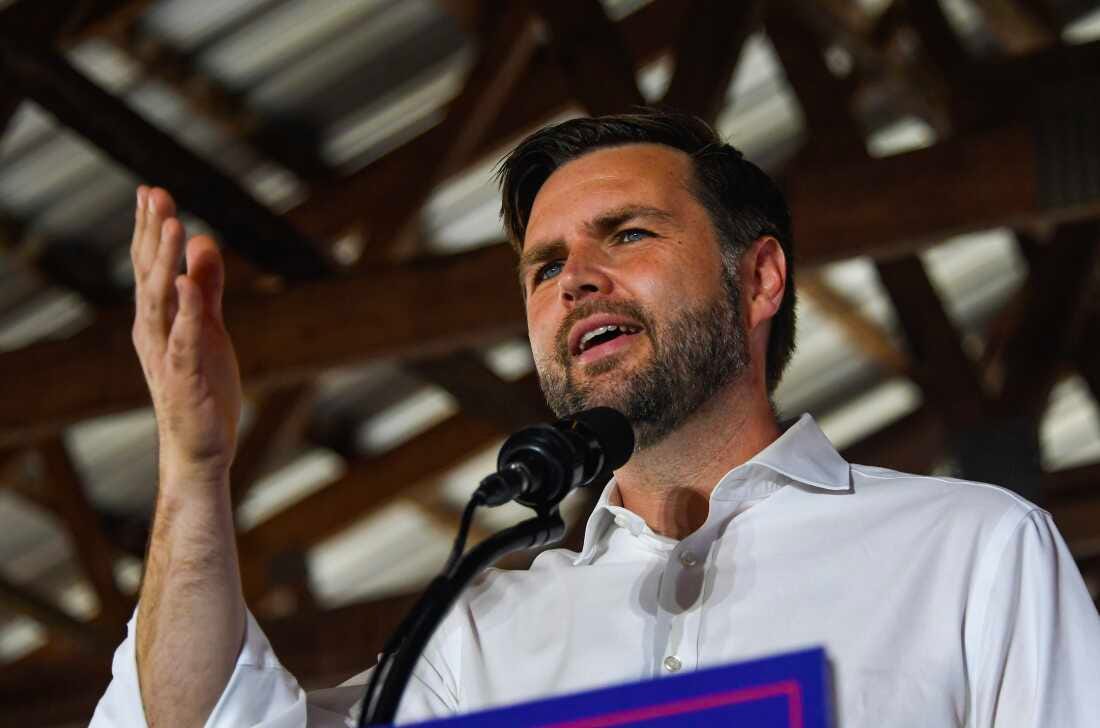

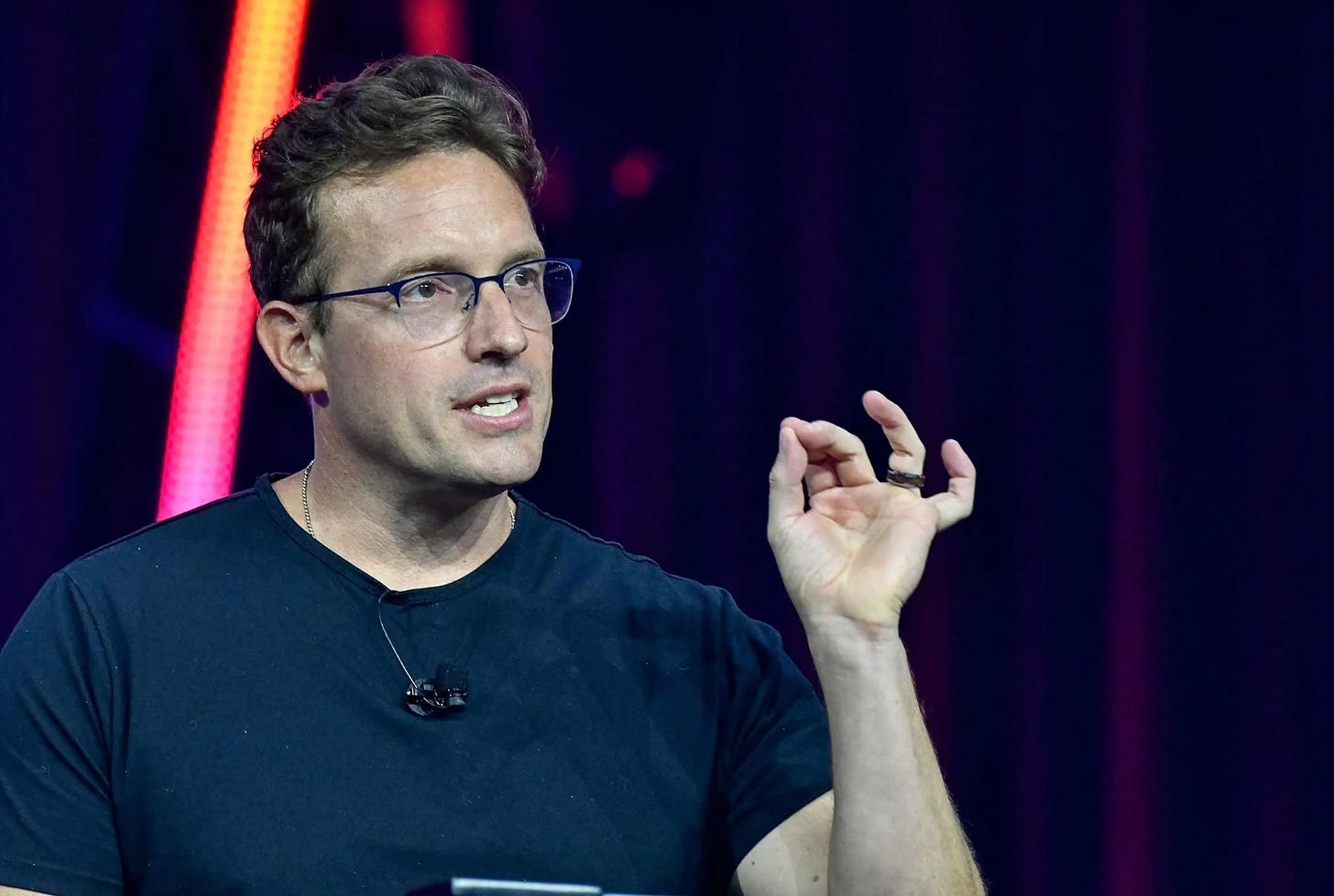
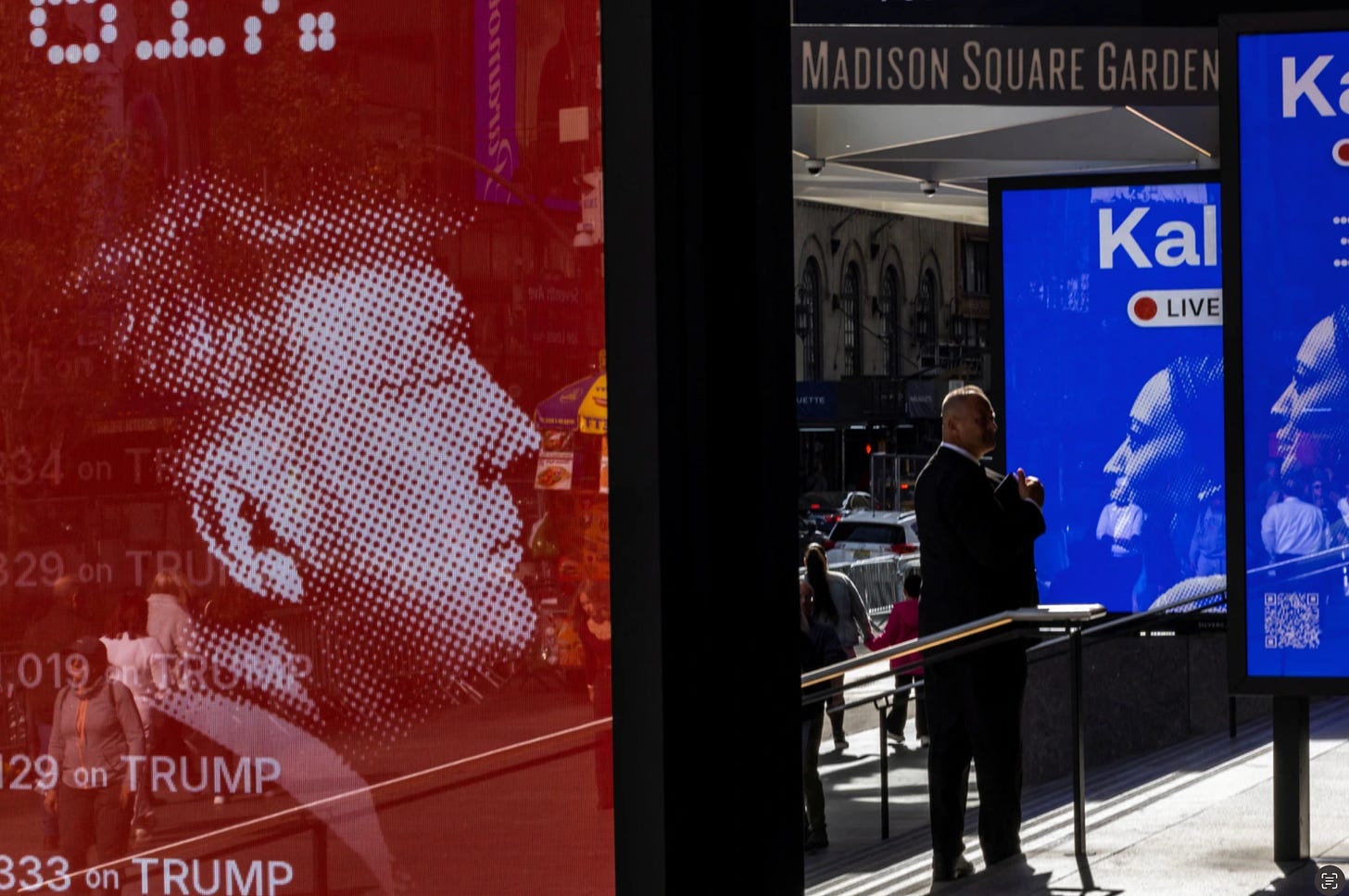
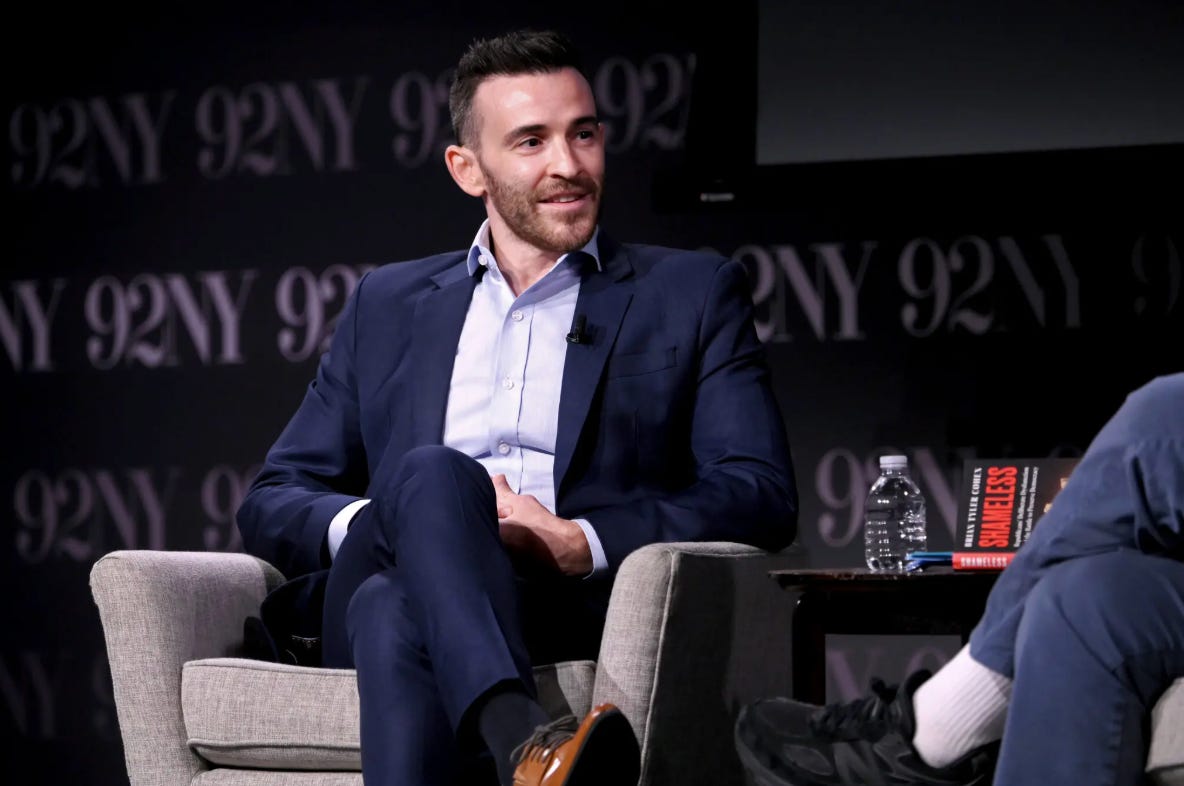
Right here is the biggest problem with our country.
Instead of trying to play the GOPs impossible, wasteful, gluttonous, cowardly game, the Democratic Party should denounce ALL political contributions and turn their back on this bullshit.
That’s the thing to run on…everyone is tired of it but it’s not a story because there is so much money to be made.
Fun Fact:
Benny Johnson, the podcaster on whose show FCC Chair Brendan Carr threatened Kimmel, was one of the influencers Russian state media funded to spread propaganda before the 2024 election.